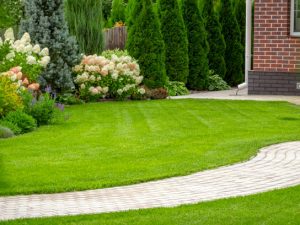Sleep Better
- Description
- Curriculum
- Reviews

Sleep is an important part of your daily routine—you spend about one-third of your time doing it. Quality sleep – and getting enough of it at the right times — is as essential to survival as food and water. Without sleep you can’t form or maintain the pathways in your brain that let you learn and create new memories, and it’s harder to concentrate and respond quickly. Sleep is important to a number of brain functions, including how nerve cells (neurons) communicate with each other. In fact, your brain and body stay remarkably active while you sleep. Recent findings suggest that sleep plays a housekeeping role that removes toxins in your brain that build up while you are awake. Everyone needs sleep, but its biological purpose remains a mystery. Sleep affects almost every type of tissue and system in the body – from the brain, heart, and lungs to metabolism, immune function, mood, and disease resistance. Research shows that a chronic lack of sleep, or getting poor quality sleep, increases the risk of disorders including high blood pressure, cardiovascular disease, diabetes, depression, and obesity. Sleep is a complex and dynamic process that affects how you function in ways scientists are now beginning to understand.
-
121. Increase bright light exposure during the day
-
132. Reduce blue light exposure in the evening
-
143. Don’t consume caffeine late in the day
-
154. Reduce irregular or long daytime naps
-
165. Try to sleep and wake at consistent times
-
176. Take a melatonin supplement
-
187. Consider these other supplements
-
198. Don’t drink alcohol
-
209. Optimize your bedroom environment
-
2110. Set your bedroom temperature
-
2211. Don’t eat late in the evening
-
2312. Relax and clear your mind in the evening
-
2413. Take a relaxing bath or shower
-
2514. Rule out a sleep disorder
-
2615. Get a comfortable bed, mattress, and pillow
-
2716. Exercise regularly — but not before bed
-
2817. Don’t drink any liquids before bed
-
291. Increase bright light exposure during the day
-
302. Reduce blue light exposure in the evening
-
313. Don’t consume caffeine late in the day
-
324. Reduce irregular or long daytime naps
-
335. Try to sleep and wake at consistent times
-
346. Take a melatonin supplement
-
357. Consider these other supplements
-
368. Don’t drink alcohol
-
379. Optimize your bedroom environment
-
3810. Set your bedroom temperature
-
3911. Don’t eat late in the evening
-
4012. Relax and clear your mind in the evening
-
4113. Take a relaxing bath or shower
-
4214. Rule out a sleep disorder
-
4315. Get a comfortable bed, mattress, and pillow
-
4416. Exercise regularly — but not before bed
-
4517. Don’t drink any liquids before bed







